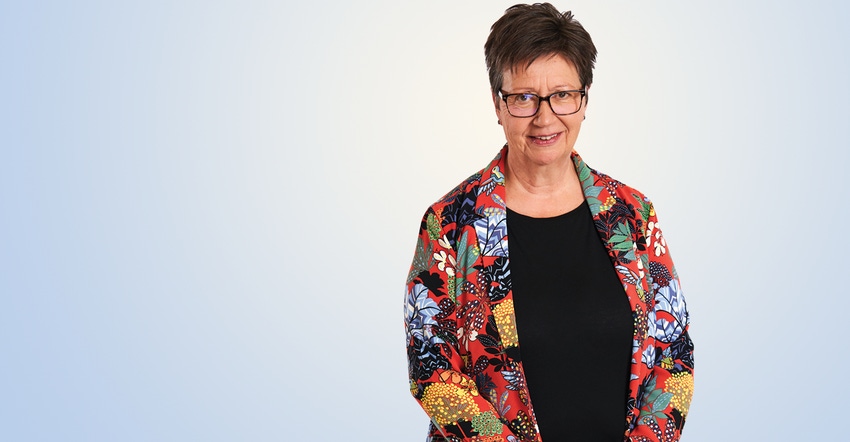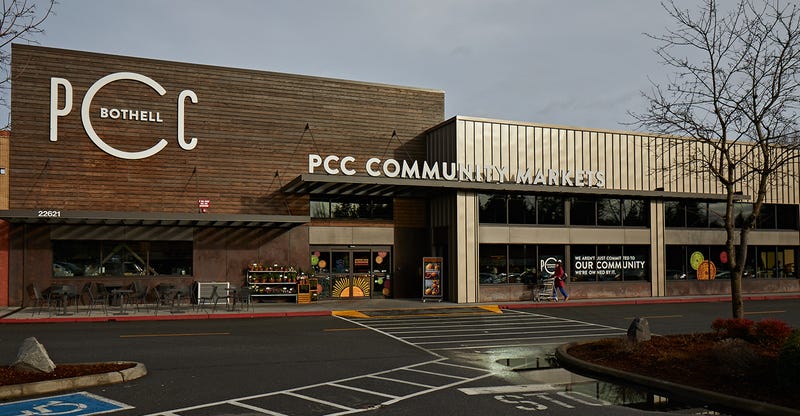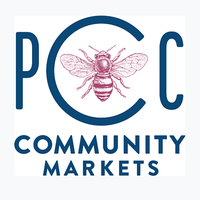October 31, 2019

Terry DeBlasio has worked many different jobs within the local food and body care industries, picking up keen insights from mentors along the way.
She began her career as a chef focused on local ingredients in the Pacific Northwest, then moved to Northern California to co-found a natural skin care company. Next, DeBlasio moved into retail, working as front-end manager for Ukiah Natural Foods Co-op. A desire to live closer to family brought her to Seattle in 2004, where she managed a Super Supplements store before joining PCC Community Markets as the health and body care merchandiser almost five years ago.
In her current position, DeBlasio shares the wealth of expertise she gained throughout her career with those following in her footsteps. She helped firm up PCC’s strict health and body care standards by creating a list of more than 550 ingredients that are either prohibited or allowed with certain restrictions. She curates tight sets of unique, innovative and sustainable SKUs and nurtures her knowledgeable and passionate staff. She even mentors startup brands and helps them break into market.
NFM caught up with DeBlasio recently to learn more of her story and about her visions for natural health and body care.
What sparked your interest in natural foods and health products?
Terry DeBlasio: I was born and raised in Yakima, Washington, which now is wine country but had been a very agricultural area. Mostly through my mom, I learned how to use fresh ingredients, distinguish what was in season and see the beauty in local foods. That translated first into being a chef, but I got to a place where I had to either open my own restaurant or work in a large hotel. Neither was appealing, so when my friend asked, I said, “Sure, let’s do this natural skin care company.” I learned everything the hard way—but I loved it.
Eventually, I left the company and joined Ukiah Natural Foods Co-op, which got me hooked on the business. Any spare moment I had, I’d ask our supplements manager questions and he’d teach me. He had a passion for natural ingredients, and I was intrigued by how they could really affect our health.
What does your role as PCC’s health and body care merchandiser entail?
TD: Every day is unique, and I’m fortunate to work with a great team, including Darrell Vannoy, our vice president of merchandising, and Justine Johnson, director of center store merchandising. When Darrell came on board, he insisted that all merchandisers spend one day a week in the stores. At first, I thought this sounded like a waste of time, but I was so wrong. This is 20 percent of my week well spent. I learn so much by interacting with customers and our staff and looking at the shelves, and then I can act on the things I see.
Also, we have a dynamic category management team, so we are always looking at new products for both our resets and our new stores. This year we restructured the entire department and reset all 11 stores over 16 weeks. We cut about a third of our selection in order to have a more curated set and be nimbler in bringing in new items.
We have two more stores coming on this year, two more next year and at least one more in 2021. One of our new stores, in downtown Seattle, will have a smaller footprint for our department, so I’m looking forward to curating that set and seeing what I can do with a small space.

What drove your team to develop PCC’s massive list of no-no ingredients for health and body care in 2016?
TD: There had been a list, but it was pulled from different sources and combined with our food list, which didn’t always make sense. So we began refining, and we still have a lot more refining to do. It is challenging work, but someone has to do it, and we know the list will never be perfect. New ingredients come out every day, some of which blur the lines between synthetic and natural, so you have to dig into each one and see how it’s made and whether it has any harmful byproducts or effects on the environment. We look at the good versus the harm of an ingredient and whether it’s necessary in a product, and we err on the side of caution—that’s our differentiator. It’s really satisfying to hear customers say again and again that they don’t need to read labels when shopping here because they trust that PCC has done the work for them. We have an incredible responsibility in that way.
How important is your staff’s knowledge to your department’s success?
TD: We have people who’ve been here for 20, 25, even 40 years, so I am considered the newbie. They are the heart and soul of the department—and in many ways the whole store. They understand ingredients and products, but more importantly, they understand our customers and marketplace. Yes, new people come on board all the time, but we have a strong training program. Also, many of our staff spend their own time researching products, ingredients and trends.
It’s their passion, and I am just in awe of them.
How has th
TD: To me, the most interesting change is the indie beauty movement. The channel feels much broader now, and there are lots of innovative small companies carving out enough space to survive and even thrive. For about a year now, we’ve partnered with Ventures, a local nonprofit that works with low-income entrepreneurs to get their businesses up and running. We’ve brought in a few companies through Ventures, and it has gone pretty well. Having owned a small business, I understand how hard it is. I didn’t have anyone guiding me, so I’m always excited to help folks break into the marketplace.
Any new initiatives for your department going forward?
TD: The biggest change is our bulk department. We’d seen declining sales for many years in Seattle, where the standard of living is relatively high, so we’d been slowly shrinking that department. But now we’re seeing a trend toward bulk, with customers asking us to add in more products. So, with the next store opening, we are committed to bulk.
We are offering some fun things like organic witch hazel, organic rose water and calendula oil made locally. And we’ve partnered with a few local companies to provide products in a closed-loop system, meaning we get containers from them and then send them back; they sanitize them and send them back to us. We are also aiming to eliminate plastic bottles for purchase—for people who forget to bring their own—and instead provide wide-mouth glass jars and aluminum containers with caps.
Outside of work, what do you enjoy?
TD: I am a wine fan, and we have some wonderful wines grown in Eastern Washington, so I enjoy tasting them. I’m lucky in that at work I sit next to our wine merchandiser, who has helped me develop my palate. I also love to travel and I love animals. Right now, I just have a small dog who loves to travel in a stroller because she is not spoiled at all. Next year, I’m going to retire and move with my wife to France.
About the Author(s)
You May Also Like
.png?width=700&auto=webp&quality=80&disable=upscale)




